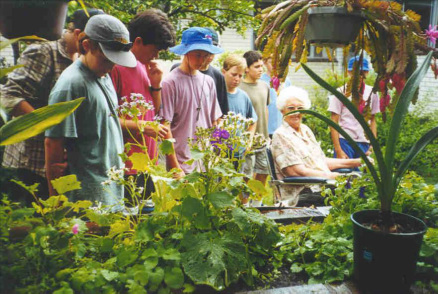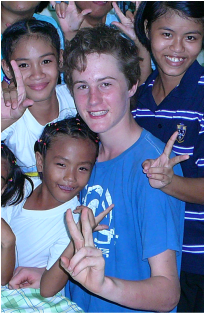|
Service Learning is a form of experiential learning.
Students do as a result of what they have learned and they learn as a result of what they do. Where opportunity, empathy, time, skill, talent, commitment and effort meet with community needs and the needs of those who might not be able to help themselves, then true service learning occurs. Christian Service-Learning includes structured reflective processes. It asks students to model Jesus as they endeavour to make a difference to the poor and destitute and to advocate for justice. Of no less importance is the need to embrace their role as stewards of the earth and to promote God's original plan for a sustainable world. Simply volunteering their time to help others is not enough. At some point, a student must ask themselves how their actions reflect Gospel values even though some activities may seem relatively simple. It will be the reflective process that will help them articulate the purpose and importance of what they did, and the affect their actions had on others and their community. For schools, authentic Christian Service-Learning can create a culture of acceptance, responsibility, respect, compassion and a willingness to be partners in their community. Research also indicates that for some students, a positive service-learning experience can lead to a better understanding of the world around them, a sense of belonging and personal fulfilment which in turn, can lead to better academic performance and classroom management. Of great importance is the need for schools not to see Christian Service-Learning as an 'add on' or extra-curricular activity that 'someone nice' does because he or she appears to have some 'extra time' in the day. Student volunteering is NOT free. It comes with the need for professional skills in volunteer management, training, duty of care, correspondence with a variety of community groups and a reasonable allocation of time and remuneration. This is to ensure that students who go on placements are also going to be in a safe environment and the activities are structured and meaningful. |
"Education must engage with and enlarge experience"
|
| Christian Service-Learning |
|


